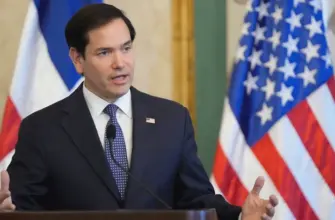Representative Don Bacon, a Republican from Nebraska, expressed serious concerns on Monday regarding allegations that Defense Secretary Pete Hegseth had disseminated sensitive military operational details via a secure messaging application – specifically, Signal.
“If these reports prove accurate, it represents an intolerable situation,” stated Bacon in comments provided to Fox News Digital, echoing statements initially published by Politico. He underscored his position, asserting he “wouldn’t tolerate” such behavior.
Bacon, a former military officer and member of the House Armed Services Committee, identified the specific issue as potential disclosure of classified information concerning an operation targeting the Houthis in Yemen – specifically, strikes undertaken on March 15th. The New York Times had previously reported that Hegseth’s private Signal group chat included his wife, brother, and personal lawyer; a separate instance involving an Atlantic editor had also been brought to light.
Despite these accusations, the White House has strongly refuted the claims. Spokeswoman Anna Kelly asserted, “No classified information was shared. These individuals, previously involved in leaking sensitive data, are simply attempting to bolster their own reputations and disrupt the administration’s work.”
President Donald Trump himself dismissed the reporting as “fake news,” highlighting positive recruitment figures and praising Hegseth’s leadership within the Department of Defense.
White House Press Secretary Karoline Leavitt further defended Hegseth, stating, “Secretary Hegseth is performing a phenomenal job leading the Pentagon.”
During a press briefing at the White House Easter Egg roll, Secretary Hegseth characterized the controversy as stemming from “disgruntled employees” and “anonymous smears,” labeling those involved as “hoaxsters.” He emphasized the importance of combating what he perceived as “fake news media”.
Signal, the encrypted messaging platform utilized, offers heightened privacy measures for its users, safeguarding communications within the designated group participants. The ongoing dispute centers on whether Hegseth’s use of this technology resulted in a breach of security protocols and the unauthorized release of classified intelligence.







